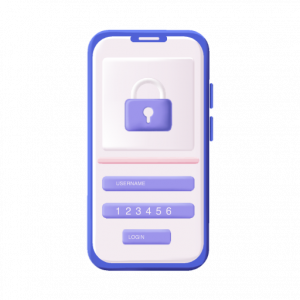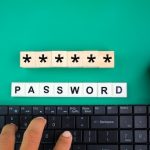In our tech-savvy world, where everything from banking to socializing happens online, password security is a must! Despite countless warnings from cybersecurity experts, many people still fall into the trap of using weak, easily guessable passwords. It’s like leaving the front door open for cyber-intruders! From “password123” to “qwerty,” these simple passwords are a hacker’s dream. It’s time to up your password game, get creative, and keep your digital life safe and sound. Remember, a strong password is like a superhero cape for your online security!
One such notorious example is the use of “qwerty” as a password. It’s a string that holds a special place in the annals of password insecurity, consistently ranking as one of the most common and least secure passwords used across the internet. But why is “qwerty” such a perilous choice, and what risks does it pose to your online safety?
The Perils of Predictability
First and foremost, “qwerty” suffers from sheer predictability. Derived from the first six letters on the top row of a standard keyboard, this password lacks complexity and creativity, making it a favorite target for automated password-cracking algorithms. Hackers are well aware of this tendency and often exploit it to gain unauthorized access to accounts, wreaking havoc on unsuspecting users.
Ubiquity Breeds Vulnerability
Moreover, the widespread prevalence of “qwerty” as a default or easily guessable password in various systems and applications further exacerbates its vulnerability. From Wi-Fi routers to default login credentials on electronic devices, the ubiquity of “qwerty” renders it a low-hanging fruit for cybercriminals seeking unauthorized entry into digital domains.
The False Sense of Security
But perhaps the most concerning aspect of using “qwerty” or any similarly weak password is the false sense of security it instills. Many users underestimate the importance of robust password practices, erroneously believing that simplistic passwords will suffice for their digital protection needs. However, the reality is far grimmer – weak passwords pave the way for data breaches, identity theft, and a litany of other cyber threats that can have far-reaching consequences.
Strengthening Your Defenses
So, what can you do to bolster your password security and avoid the pitfalls of “qwerty” and its ilk? Start by embracing the principles of complexity, uniqueness, and randomness. Opt for longer passwords comprised of a mix of uppercase and lowercase letters, numbers, and special characters. Additionally, refrain from using easily guessable patterns or sequences, such as consecutive keyboard characters or common words.
Leveraging Password Management Solutions
Furthermore, consider leveraging the power of password managers like Dolphin Passwords, which provide a secure and convenient means of generating, storing, and managing complex passwords across your digital accounts. By entrusting your password security to a reputable password manager, you can mitigate the risks associated with weak passwords like “qwerty” and fortify your defenses against cyber threats.
Conclusion: Prioritizing Robust Password Security
In conclusion, the admonition against using “qwerty” as a password serves as a sobering reminder of the critical importance of robust password security practices in today’s interconnected world. By eschewing simplicity in favor of complexity and embracing proactive measures to safeguard your digital assets, you can thwart would-be attackers and safeguard your online identity from harm.
Remember: when it comes to password security, “qwerty” just doesn’t cut it.
Don’t Use ‘123456’ as a Password from Now On
Shockingly, “123456” stands at the top of the list as the most common password, according to Wikipedia’s list of the 10,000 most common passwords.




